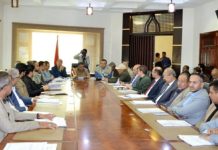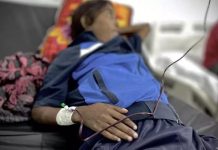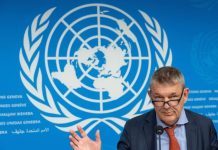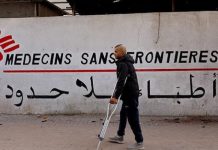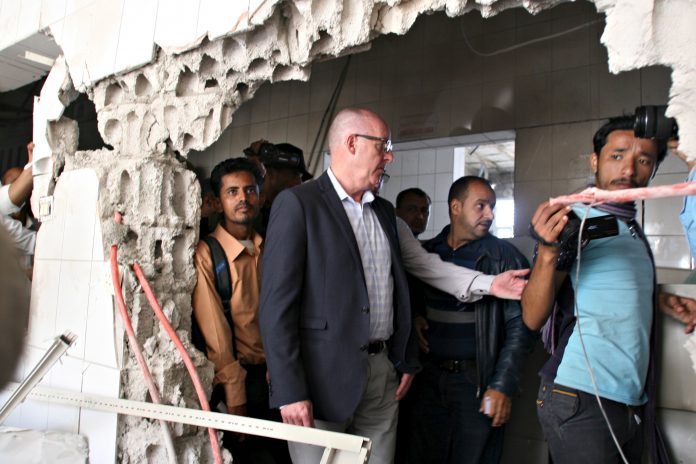The British daily newspaper, The Guardian, discussed Wednesday, in a report by Bethan McKernan, the Middle East correspondent, the health situation in Yemen and the targeting of health facilities during five years of war.
The report said that hospitals and doctors in Yemen have been targeted at least 120 times, according to a report that gives the most comprehensive analysis to date of the devastating effect of war on the country’s healthcare system.
There were 120 incidents across 20 of Yemen’s 22 governorates between March 2015 and December 2018, including airstrikes, ground attacks, military occupation, assaults on health workers and other violations such as looting and restrictions on humanitarian aid, according to analysis co-published by Physicians for Human Rights (PHR) and the Yemeni human rights group Mwatana on Wednesday.
The findings come as Yemen’s already decimated medical sector is bracing for the possibility of a coronavirus outbreak.
The collapse of Yemen’s healthcare system has been a major contributing factor in creating what the UN says is the worst humanitarian crisis in the world, with two thirds of the 28 million-strong population dependent on aid to survive, widespread hunger and outbreaks of cholera and diptheria.
“What our report shows is how blatantly international humanitarian law has been ignored in Yemen’s conflict and how in particular attacking healthcare facilities has a long-term and wide-reaching impact,” said Osamah Alfakih, Mwatana’s advocacy director, who co-authored the report.
Attacks on hospitals and clinics have closed more than half of Yemen’s pre-war facilities and the constant threat of being targeted makes it very difficult for doctors and nurses to work, Alfakih said.
Interviews with nearly 200 survivors and eyewitnesses identified patterns of attacks and specific violations that killed at least 96 civilians and healthcare workers and injured 230 more. Thus, the report could be used in future war crimes investigations against the Saudi- and Emirati-led coalition.
Mwatana documented 35 coalition aerial attacks on hospitals, clinics and vaccination centres, which it says is “evidence of [the coalition’s] disregard for these structures’ protected status and apparent unwillingness or inability to comply with the principles of distinction and proportionality”.
The report also criticises the coalition for a lack of transparency in its operations, adding that “it remains unclear what precautions the coalition has adopted to minimise harm to Yemen’s health facilities and personnel”.
Among its recommendations the investigation says the UK, US, Canada, France and other countries currently facilitating weaponry and support to the coalition should immediately suspend sales contingent on respect for international humanitarian law in the coalition’s Yemen operations and comprehensive efforts to investigate alleged crimes and violations.
The report also referred to the concerns about the Covid-19, that it could cause a catastrophic impact if it reaches vulnerable communities in Yemen.
The virus could “thrive in active war zones like Yemen and Syria, putting the lives of thousands of civilians in even more danger,” said the IRC president, David Miliband.




